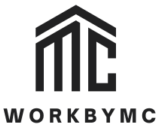Are you prepared to bring your business concept to life? What steps do you need to take to ensure a smooth start? Starting a business is an exciting journey, but it requires careful planning and decision-making. From choosing the right structure to understanding legal obligations, there are several factors to consider. Let’s break down everything you need to know to make the process easier.
Choosing the Right Business Structure
The first step when you register a company is selecting the correct business structure. Your choice will affect how you operate, pay taxes, and manage liabilities. Sole traders, partnerships, companies, and trusts are typical business formations in Australia. Each has its pros and cons, depending on the size and nature of your business.
For example, a sole trader structure is simple and cost-effective but offers limited liability protection. Take the time to research which structure suits your goals and circumstances. Consulting a professional can also help you make an informed decision.
Understanding Legal Requirements
Meeting legal obligations is a crucial part of starting any business. In Australia, this includes registering for an Australian Business Number (ABN) and, if applicable, Goods and Services Tax (GST). You’ll also need to ensure your business name is available and not already in use. This can be checked through official government portals.
Some industries also require specific licenses or permits to operate legally. Understanding these requirements upfront can save you time and avoid potential penalties later. It’s all about starting on the right foot.
Preparing Your Business Plan
A solid business plan is essential for success. It not only provides a roadmap for your operations but also helps attract investors and secure funding. Your plan should outline your goals, target market, competitive analysis, and financial projections. It’s important to be realistic and include details about how you’ll handle challenges. Having a clear plan also ensures you’re well-prepared to adapt to market changes. Think of it as the foundation of your business’s long-term strategy.
Budgeting and Financial Planning
Financial preparation is another critical step before launching your business. Understanding your costs and revenue streams will help you stay in control. Start by estimating your startup expenses, such as equipment, marketing, and initial inventory. Then, calculate your ongoing costs, including rent, salaries, and utilities. Don’t forget to explore funding options if needed. Whether it’s a business loan, investment, or personal savings, having a financial safety net is essential.
Exploring Tax and Insurance Obligations
Taxation and insurance are key aspects to address when starting a business. In Australia, businesses need to comply with tax regulations set by the Australian Taxation Office (ATO). Depending on your business structure, you may be required to lodge regular Business Activity Statements (BAS).
Understanding your tax obligations ensures compliance and prevents unexpected liabilities. Insurance is equally important. Public liability, professional indemnity, and workers’ compensation are common types of coverage for Australian businesses. Assess your risks and invest in policies that safeguard your operations.
Leveraging Professional Help
Navigating the complexities of starting a business can be overwhelming. Seeking professional advice can make the process smoother. Accountants, lawyers, and business advisors can help you with everything from legal compliance to financial planning.
They’ll ensure you’re meeting requirements and making sound decisions. While this may involve an upfront cost, it often saves money and stress in the long run. Their expertise can also help you avoid common mistakes that new business owners make.
Starting a business is an exciting but challenging journey. Taking the time to research and plan ensures you build a strong foundation for success. When you’re ready to register a company, make sure you’ve chosen the right structure, prepared financially, and sought professional guidance where needed. These steps will help you navigate the process with confidence. Ultimately, starting a business isn’t just about ticking boxes—it’s about creating something sustainable and meaningful.

